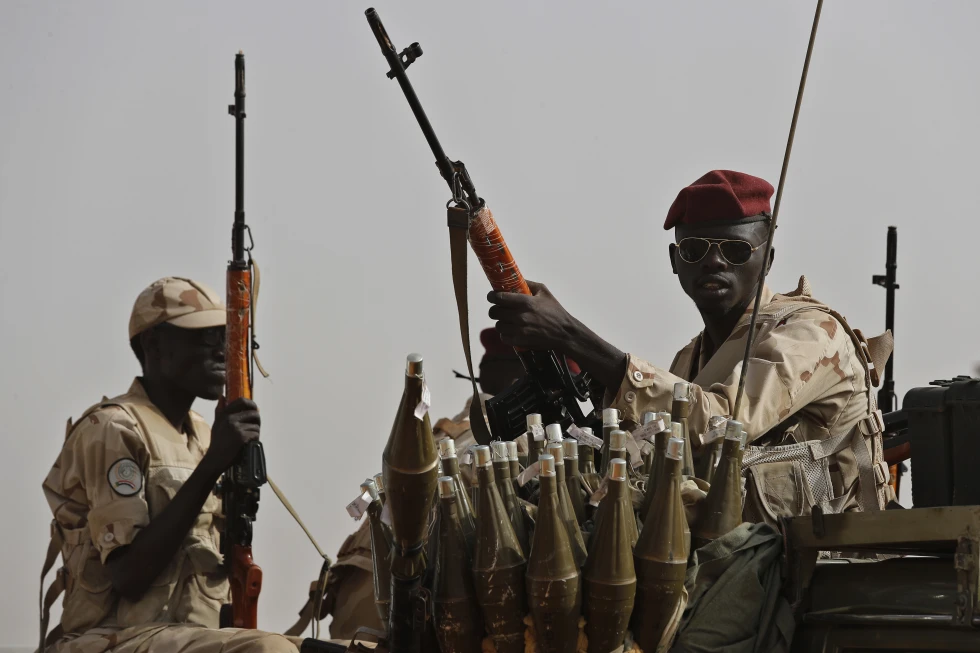By Fatma Khaled
Armored vehicles manufactured by the United Arab Emirates and equipped with French defense systems have been captured by the Sudanese army during the civil war in Sudan, Amnesty International says.
The rights group said in a report on Thursday it had identified the UAE-made armored personnel carriers (APCs) in various parts of Sudan, including the Darfur region, where they were used by the paramilitary Rapid Support Forces (RSF) in its fight with the Sudanese Armed Forces (SAF).
It added that the presence of the military vehicles on the battlefield “likely constitutes a violation” of a United Nations arms embargo that prohibits the transfer of weapons to Sudan.
The civil war broke out in April 2023 after simmering tensions between the RSF and the Sudanese army escalated to intense fighting across the North African country, where rampant human rights violations were committed.
More than 20,000 people have been killed in the conflict, according to the U.N., while 11.6 million have been forcibly displaced, including 8.3 million people internally and 3.1 million people who fled to neighboring countries.
Sudan’s claim that the UAE has been supplying the RSF with weapons that prolonged the 18-month war with the army has been denied by the UAE.
Amnesty’s report said it had identified the presence of several Nimr Ajban APCs on the ground after verifying pictures shared on social media showing the vehicles captured or destroyed by the Sudanese army.
The vehicles were reportedly made in the UAE by Edge Group and equipped with the Galix reactive defense system, which is manufactured in France by Lacroix Defense and KNDS France, according to the Amnesty report.
The Galix system is designed to protect vehicles from approaching threats by releasing projectiles, smoke and decoys, according to Lacroix’s website.
“Our research shows that weaponry designed and manufactured in France is in active use on the battlefield in Sudan,” said Agnès Callamard, Amnesty International’s Secretary General.
“The Galix System is being deployed by the RSF in this conflict, and any use in Darfur would be a clear breach of the U.N. arms embargo,” she said. “The French government must ensure that Lacroix Defense and KNDS France immediately stop the supply of this system to the UAE.”
In response to the Amnesty International report, Lacroix said in an emailed statement to The Associated Press that the company confirms it had supplied the Galix systems for the Emirati Armed Forces for the use of smoke-screening countermeasures.
“These deliveries were made in strict compliance with the export licenses granted to LACROIX and the associated end-user certificates,” the statement read.
Meanwhile, responding to the Amnesty report, a spokesperson for the Emirati government said in an emailed statement that the UAE is the “target of a coordinated disinformation campaign aimed at undermining our foreign policy, regional role, and humanitarian efforts.”
“It is both outrageous and unacceptable that the SAF representatives continue to level accusations against the UAE, alleging our involvement in the ongoing conflict,” the statement read, adding that the UAE has been involved with humanitarian initiatives to help Sudanese people in the conflict.
The UAE said it has told the U.N. Security Council and international partners that it is not providing support or supplies to the RSF or “any of the belligerent warring parties in Sudan.”
Last month, the United States sanctioned Algoney Hamdan Daglo Musa, a senior RSF leader and the brother of the paramilitary’s commander Mohamed Hamdan Daglo, for “leading efforts” to supply weapons throughout the war. Algoney controls the UAE-based Tradive General Trading LLC, a front company that imported vehicles to Sudan on behalf of the paramilitary RSF and retrofitted them with machine guns.
AP

